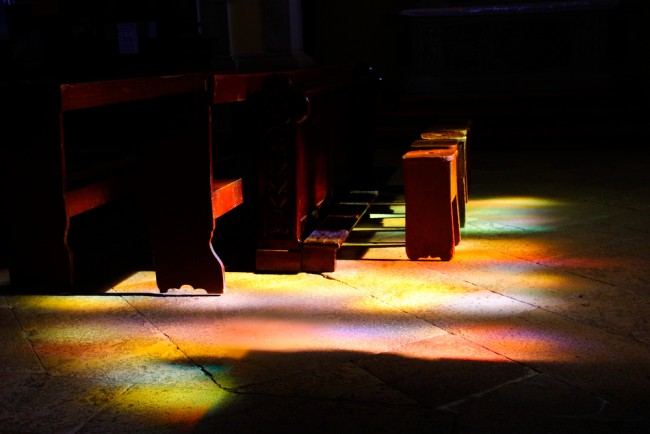Faith Trends I See in 2015

In the spirit of Janus, I ended the year looking backward at a world in disarray and forward at three faith movements I expect in 2015.
1. Good news: memories are fading.
This will be year 50 in the decline of American mainline Protestantism. The decline is a source of pain and anxiety among church leaders. Church doors are closing faster than they are opening.
The decline has had many factors, but in general, was caused by churches’ doomed efforts to stay the same even as the surrounding world changed. That means year 50 brings good news: the ranks of those who remember 1957 — the high-water mark of mainline Protestantism, which ran out of gas around 1965 — are dwindling.
Gone — or going — are those who remember when Sunday worship was enough, when being in church was comfortable and fun (mainly because we were children), when we had the world’s respect, and when belonging didn’t require much.
Now fresh ideas and younger leaders can operate more freely, taking us beyond comforts of childhood.
2. Good news: hypocrisy isn’t working.
Conservative Christianity is a complex phenomenon, and much of what it does, such as missionary work, is extraordinarily good. But a core hypocrisy is out in the open.
Right-wing Christianity has been an apologist for bigotry and moral bullying. Under the pretext of “defending” God and the Bible, the hateful and smug have turned Bible passages into weapons and moral certainty into abuse.
Those practices have stopped working outside the bubble. More and more people are simply appalled by the cruelty and arrogance of right-wing Christianity.
Progressive Christianity is no less complex and, it, too, has some extraordinary strengths, such as dedication to human freedom and tolerance of diversity.
Progressive Christians, however, have had their own hypocrisy, namely, using religion to gain cultural benefits and calling those struggles good-vs-evil issues in which God takes their side. Meanwhile, they have been lax on what Jesus truly sought, namely, transformation of life, self-sacrifice, and victory over Mammon and fear.
3. Good news: individual trumps corporate.
Until recently, faith was seen as a corporate quest: I found a church that helped me feel closer to God, or I joined a Bible study group, or I signed on to a mission team. The group — and inevitably its institutional integrity — guided my spiritual journey.
Now individual spirituality is replacing corporate (or group) religion. People are taking responsibility for their beliefs. As in the saying often ridiculed but in fact wise: “I am spiritual but not religious.”
Corporate faith has come to mean institution. And that institution, in turn, has come to seem dangerous, toxic, seeking mainly to replicate itself through constituents’ conformity, and believing its larger existence matters more than the quests of individual constituents.
Individual faith, by contrast, promises relationship with God. Sure, some religionists scoff at that relationship as self-led and therefore self-deluded, but in fact it’s more likely to be a deep and humbling journey of transformation than are the battles and shoulds of corporate religion.
What will come of these three movements? I expect 2015 will be a great year for Christianity in America. Different, disconcerting, but lively, transformational, and faithful.
